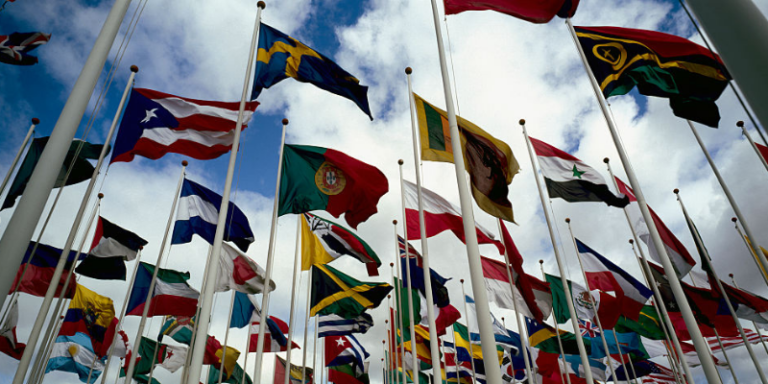Isolationism vs. Non-Intervention
How should the U.S. act on the world stage?
By: Andrew Moran | October 29, 2019 | 360 Words

(Photo by julio donoso/Sygma via Getty Images)
Former President George W. Bush recently opened a debate on the difference between non-interventionism and isolationism. He took a shot at President Donald Trump in a speech, saying, “an isolationist United States is destabilizing around the world,” and “we are becoming isolationist and that’s dangerous for the sake of peace.” These comments came as President Trump has been decreasing the number of U.S. troops stationed around the world and slamming wars the U.S. has been involved in for years. But is this really isolationism?
What is Isolationism?
Isolationism is defined as a nation that keeps to itself, refusing to participate in global commerce, political agreements, and foreign matters.
In economics, an isolationist might refuse to trade with other countries. In foreign policy, an isolationist would refuse to join military conflicts, choosing not to get involved in something that does not concern the country. Also, an isolationist might refuse to talk or co-operate with other nations.
An isolationist may prevent the traveling of people by shutting down its borders and stopping citizens from leaving the country.
This is not what America’s Founding Fathers encouraged; they instead argued that nations should trade, travel, and talk among one another.
What is Non-Intervention?
 Former President John Quincy Adams recommended a non-interventionist foreign policy when he wrote, “America … goes not abroad, in search of monsters to destroy. She is the well-wisher to the freedom and independence of all.” Put simply, non-intervention is about not searching for dragons to slay. It is an idea that argues against getting involved in the internal affairs of foreign countries.
Former President John Quincy Adams recommended a non-interventionist foreign policy when he wrote, “America … goes not abroad, in search of monsters to destroy. She is the well-wisher to the freedom and independence of all.” Put simply, non-intervention is about not searching for dragons to slay. It is an idea that argues against getting involved in the internal affairs of foreign countries.
Non-intervention is different from isolationism because it still encourages traveling around the world, engaging in diplomatic talks, and trading with foreign markets. It is about minding your own business on the world stage but still participating in friendly relationships and agreements of an economic nature.
Which is the United States?
Even after the removal of combat troops from a handful of nations, the U.S. military is still stationed in bases all over the world. Soldiers remain in Iraq, Afghanistan, and Syria. The U.S. is far from being an isolationist nation, or a non-interventionist one.
















